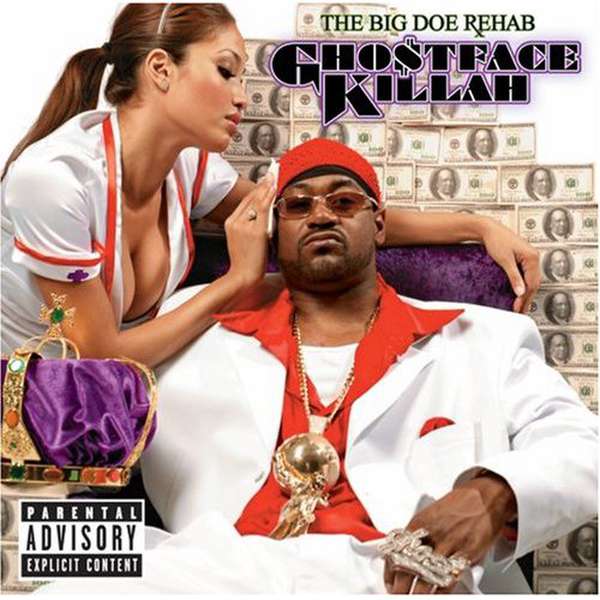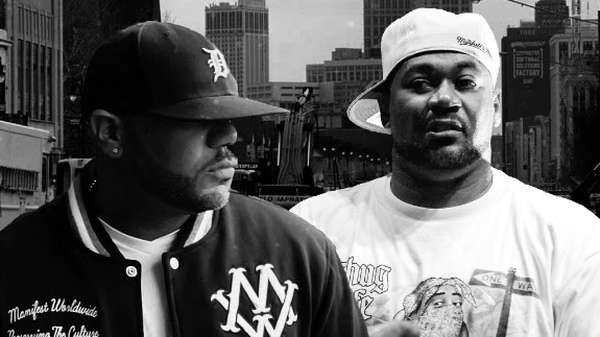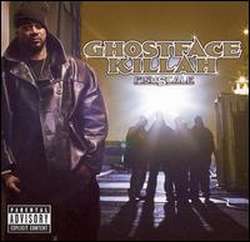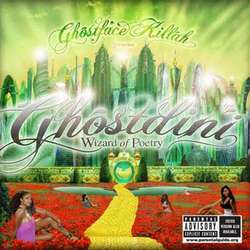On his seventh album it sounds like Ghostface is handing over the reins to the less noted, giving more of his name and less of his talent, allowing the up and comers to ride on his success. The overall presentation of the album seems rushed and halfhearted; perhaps he assumes that people will purchase the album solely on the premise that his picture is on the cover. Compared to the beats on Fishscale the production isn't sub-par, but lackluster. Consequently the delivery on this album sounds timid, lacking the tenacity heard on the previous releases, as if Ghost himself is unsure of his rhymes. The number of guest appearances heightens this uncertainty, with almost every track featuring guest appearances from other rappers.
The sparse verses Ghostface Killah gives leaves me feeling something between shock and disturbance. His celebration of violence, drugs, and promiscuity on The Big Doe Rehab punches a few more notches in his bravado belt but it also dethrones him from being the king of hip-hop. On one track he states, "If you're fat I may have to take one for the team, but I gotta be drunk first y'all know what I mean." I'm not completely disgusted by this; but it's not exactly the ideas I want to hear perpetuated. The entirety of the album plays out like this, detailing aggressive tendencies, especially when money is involved. Sure his last album revolved mostly around drugs, but it was a little more telling too, so we understand that half of his actions stem from his past. This album just glorifies thug mentality for the sake of it, just to keep his rep in check.
Fishscale features tracks produced by MF Doom, J Dilla, and superstar producer Just Blaze, making for a solid album assembled by hip-hop's finest producers. The Big Doe Rehab has beats constructed by largely unheard of producers. These tracks provide a solid beat but not much else. The simplistic style calls back RZA's early work with the Wu-Tang Clan but sounds empty, leaving the weak lyrics to carry the song. The Big Doe Rehab also has a heavy use of soul and funk samples which would work well for a reflective slow jam but seem out place here. When juxtaposed against the aggressive content of the lyrics, the beats aren't a nod to the past but a defamation of what the music was supposed to mean.
Though this album is an honest step down from his last, it's hard to hate it altogether because on the face of it, this still comes out better than Soulja Boy, Lil' Jon and all the other emcee's turning hip-hop into the new dance music.



